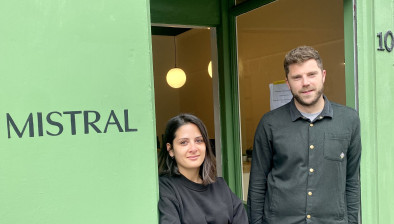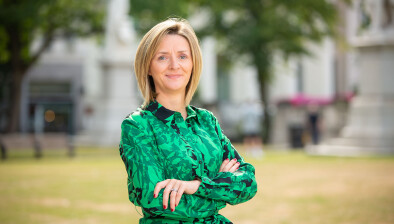Scotland’s smaller businesses more familiar with ‘carbon jargon’ than the rest of the UK

Mark Sterritt
Smaller businesses in Scotland have the greatest understanding of the language and information on emissions and green issues in the UK, according to a new study commissioned by the British Business Bank.
Only around two-fifths (39%) of Scottish respondents said they felt the language, terminology and information around emissions reduction is inaccessible and overcomplex, compared to 54% of respondents across the UK.
However, the survey of senior decision-makers in Scottish smaller businesses also revealed that many respondents do not fully understand commonly used terms such as greenhouse gas (GHG) emissions (97%); net-zero (77%); and carbon neutral (75%). A significant proportion were unsure how these topics – GHG emissions (53%), net-zero (44%), or carbon neutrality (55%) – applied to their businesses.
More than half (59%) would find more information and advice about taking action to measure and reduce their business’ carbon emissions helpful, with half (49%) wanting information to help work out if reducing carbon emissions makes financial sense for their business.
While 71% of Scottish respondents believe that large corporations are responsible for the majority of business carbon emissions, the British Business Bank’s Smaller businesses and the transition to net-zero report, published in October 2021, showed that smaller businesses, in fact, account for around half (50%) of total emissions from UK businesses.
Just 3% of smaller businesses say reducing their carbon footprint and environmental impact is their number one priority for 2022.
Mark Sterritt, UK network director, Scotland at the British Business Bank, said: “It is encouraging to see that smaller businesses in Scotland are the least likely in the UK to find ‘carbon jargon’ difficult to follow. This can potentially be put down in part to the high level of engagement around COP26 in Glasgow last year, when these sorts of concepts and the associated language were being commonly used in discussions and in the media for months before in the build-up.
“However, there is still a large proportion that don’t fully understand some of the central terms and phrases used in conjunction with sustainability and climate change. This has to be addressed for everyone to understand how they can play their part, so there is still a lot of work to be done to help smaller businesses decipher some of the terminology around decarbonisation and net-zero.
“Many consumers now consider sustainability when they make a purchase. By becoming greener, smaller businesses can enhance their competitive edge and expand their customer base, as well as contribute to Scotland’s, and the UK’s, net-zero transition.”
Results from the latest research have been used to inform the British Business Bank’s new #GreenToGrow campaign, which aims to demystify and alert smaller businesses to the commercial benefits of investing in decarbonisation.
Resources include a new ‘Green Decoder’ – an online guide designed to help smaller businesses decipher the terminology surrounding decarbonisation – as well as a series of guides and information about green issues and how smaller businesses can start their journey towards net-zero, available through the Bank’s online Finance Hub.
Mr Strerritt added: “The Bank’s mission is to continue to drive sustainable growth across the UK, and to enable the transition to a net zero economy, by improving access to finance for smaller businesses. Our new #GreenToGrow campaign will help more Scottish businesses find the information they need to reduce emissions and become more sustainable.”







